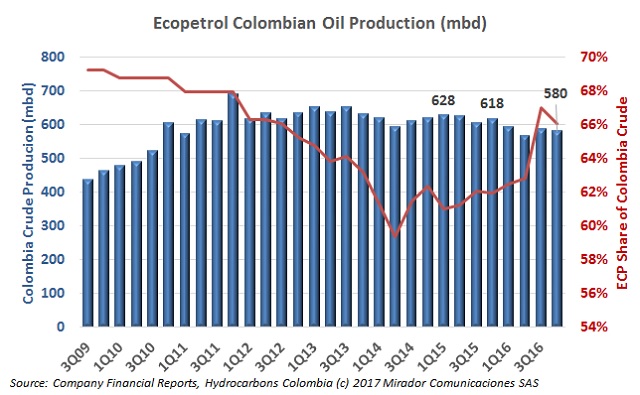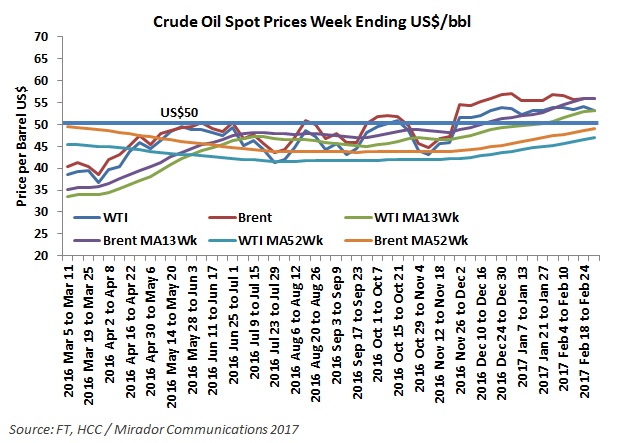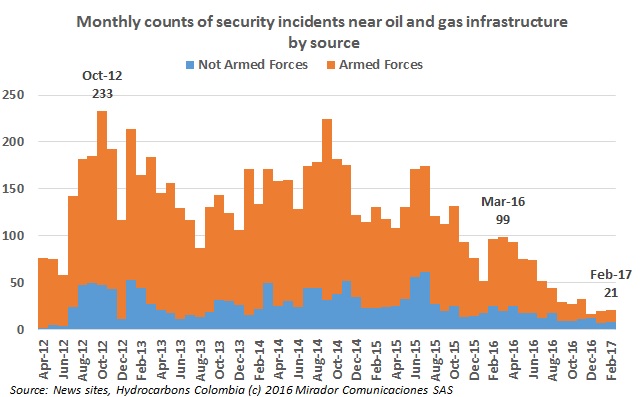The National Government failed to receive about CoP$23.6T due to the oil price drop and the sector crisis affected everyone. In September 2015, the National Hydrocarbons Agency (ANH) announced improvements and incentives to boost the sector. Nearly a year-and-a-half later, finally, the new regulation has been approved.
The Army and the Police carried out a series of operations that led to the confiscation of over 3,000 gallons of fuel that were being illegally transported through the country, Ecopetrol (NYSE:EC) reported that attacks against the Caño Limón-Coveñas pipeline continue, and authorities showed their concern regarding the expansion of dissident Farc groups in different departments of the country. The development of these and other stories in our periodic Security Summary.

Ecopetrol (NYSE: EC) made public its financial results for 2016. The company notes that it did well despite the difficult circumstances. The NOC exceeded its production target and presented positive financial results.

January, Brent averaged US$55.89 and in February US$56.24, a less than 1% change and identical in percentage terms to the change between January 2017 and December 2016. Yawn!
Huila’s inhabitants showed their rejection against this year’s fuel surcharge in the department.
As a way to protest against the low salaries and lack of health benefits that Ecopetrol (NYSE:EC) allegedly imposed to its workers, USO announced a ‘national mobilization and protest day’. The Union also denounced supposed threats against its Magdalena Medio leaders, and reported it is currently mediating between the NOC and communities in Putumayo.
Three tax experts from Bogotá-based law firm Briggard & Urrutia gave us their opinions on the impact of the December 2016 Tax Reform on oil and gas companies.

Security incidents near oil and gas infrastructure went up slightly last month (by one) and the ELN remains the protagonist.
Ecopetrol (NYSE: EC) begins the year with several challenges to face and overcome. The company expects to start recovering after two difficult years. With an oil price above US$50, prospects are more optimistic.
Liberal Senator Luis Fernando Velasco, expressed his rejection towards this year’s fuel surcharge, which he classified as “illegal and unfair” to Colombians’ finances.